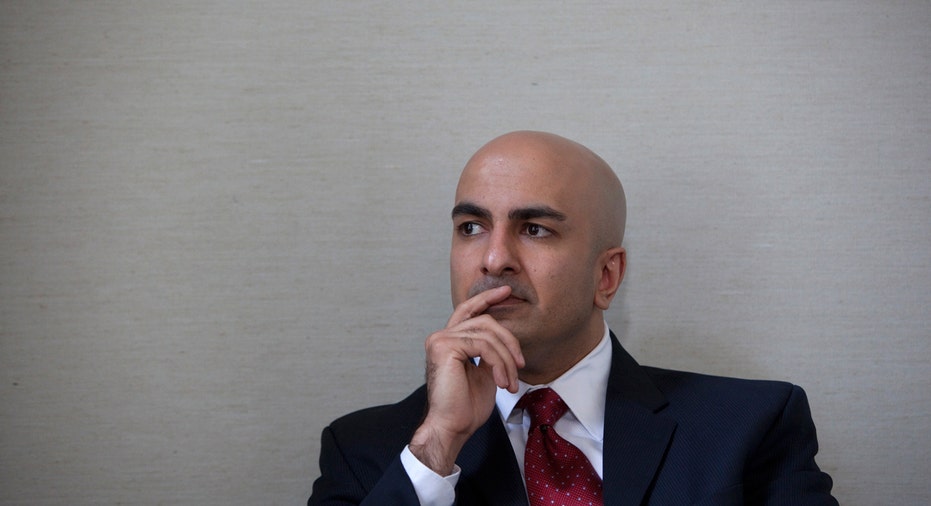Fed's Kashkari Says Sees Room for Improvement in Economy

The Federal Reserve's current monetary policy stance is appropriate, a top U.S. central banker said on Monday, because low rates are helping bring workers back to the labor force without putting too much upward pressure on inflation.
But there is only so much the Fed can do, Minneapolis Fed President Neel Kashkari said in remarks prepared for delivery to the Economic Club of Minnesota, warning that keeping rates low for too long could put too much upward pressure on inflation.
"If we provided too much stimulus and lost control of inflation as in the 1970s, virtually all Americans would suffer," he said. "We might then have to raise interest rates aggressively to bring inflation back down - potentially causing a recession that could put out of work the very people we were trying to help. Nonmonetary policies are needed to address the root causes of the problems that unfairly leave some Americans behind."
Kashkari, who is not a voter on Fed policy this year, detailed some of his views on monetary policy earlier in an interview with Reuters.
In his prepared remarks he said he thought too much focus was being put on the Fed and its immediate interest-rate decisions, rather than longer-term solutions to America's challenges, including an apparent decline in productivity growth that potentially threatens the wellbeing of future generations.
"Whether the (Fed) raises rates in June isn’t going to be what determines whether our children and grandchildren are better off than we are," Kashkari said. "(G)iven the lack of notable price and wage pressures and the possibility of drawing more people back into the labor market, I believe the current accommodative policy stance is appropriate."
(Reporting by Ann Saphir; Editing by Andrea Ricci)



















